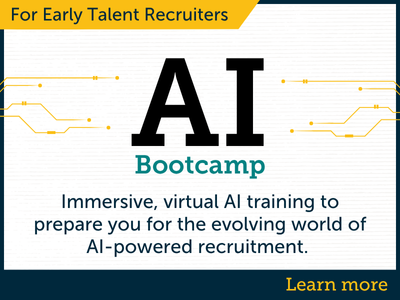Data can tell stories that are beneficial to the work we do. NACE conducts research that identifies important trends and unearths key insights that can help members enhance or adjust their operations to meet challenges and demands or take advantage of opportunities.
Joshua Kahn, Ph.D., NACE’s associate director of research and public policy, says that among the important job market insights and trends recent NACE research has found are:
- Class of 2023 college graduates are heading into a very strong job market—The current job market is about as strong as that for the previous class, which did very well. We are looking at back-to-back strong years.
- It remains to be seen if and when the pay gap will shrink—We know that college students overall are doing better in terms of job offers and salary, but not everyone—or not even everyone within the same major—are seeing the same benefits. NACE has been tracking the pay gap for early college graduates for the last few years; unfortunately, it has not yet narrowed.
- Hybrid work is here to stay—This matches student preferences as 46% of graduating seniors say they prefer a hybrid work arrangement, while 42% want to be fully in person and the remaining 11% favor being fully remote.
NACE23 Virtual
Joshua Kahn, Ph.D., will present “Telling a Story With NACE Research: during NACE23 Virtual on June 28 and 29. More information is available on NACEWeb.“Employers are going to have to learn how to best manage this new frontier,” Dr. Kahn explains.
“Remote or hybrid work isn’t new per se; what’s new is the scale. Employers may have had a small percentage of their employees in a hybrid or remote setting, but now, employers are expecting about half of their workforce to be hybrid.”
He says that NACE research frequently supports or dispels the common narratives we hear in the media. When the media was discussing large job growth, NACE’s Job Outlook survey and Student Survey showed data very much in line with that narrative.
“However,” Dr. Kahn continues, “NACE research has also dispelled some narratives as well. For example, with the economy writ large, the common narrative was that a recession is three to six months off … for the last 18 months. NACE data has shown a consistently strong job market with increasing wages for interns and nearly all majors.”
He points to NACE asking employers their hiring plans when recession headlines were at their peak in the late fall, right around the midterms.
“Our quick poll results showed only 25% of respondents were planning for a recession,” Dr. Kahn says.
“If our members are following our results, they got more accurate information from NACE research than from the common narratives being floated by the largest media sources.”
Based on the whole of NACE research, there are two seemingly disparate themes that should be intertwined to yield best practices. First, he says, NACE’s Equity in Recruiting Project showed the importance of building relationships with students and schools.
“It was true of recruiting for equity at HBCUs, and it’s true for other students and schools as well,” Dr. Kahn explains.
“Employers and recruiters should focus on their relationships with schools, not just the outcomes in the number of students who apply and accept positions with them. Strong relationships can lead to sustainable recruiting and a strong brand on campus.”
Second, virtual recruiting should be used to reach new and untapped schools where employers may have previously thought there was not a sufficient return on their investment of resources.
“The ROI equation has changed now with virtual recruiting options,” Dr. Kahn says.
“Although it’s more challenging to build deep relationships via virtual options, it is quite possible for employers to begin new relationships with colleges and then follow up with in-person visits. Because technology is so widely available, making it easier to scale operations, employers that are most adept at building and sustaining relationships will be the ones that set themselves apart during the next decade. They will be the companies that can hire the most talented college graduates.”
He is looking forward to seeing where current trends take our profession. While Dr. Kahn is waiting to see if modality settles into a stable range over a few years before declaring it the “new normal,” he declares that hybrid is clearly here to stay.
“That genie can’t be put back in the bottle, but the level that employees and employers settle on remains to be seen,” he says.
“I am also very much looking forward to examining internship participation by industry. This is a new question NACE added to the Class of 2023 Student Survey and I can’t wait to dig into the numbers and share them with the membership.”
Undoubtedly, there will be interesting stories to tell.





